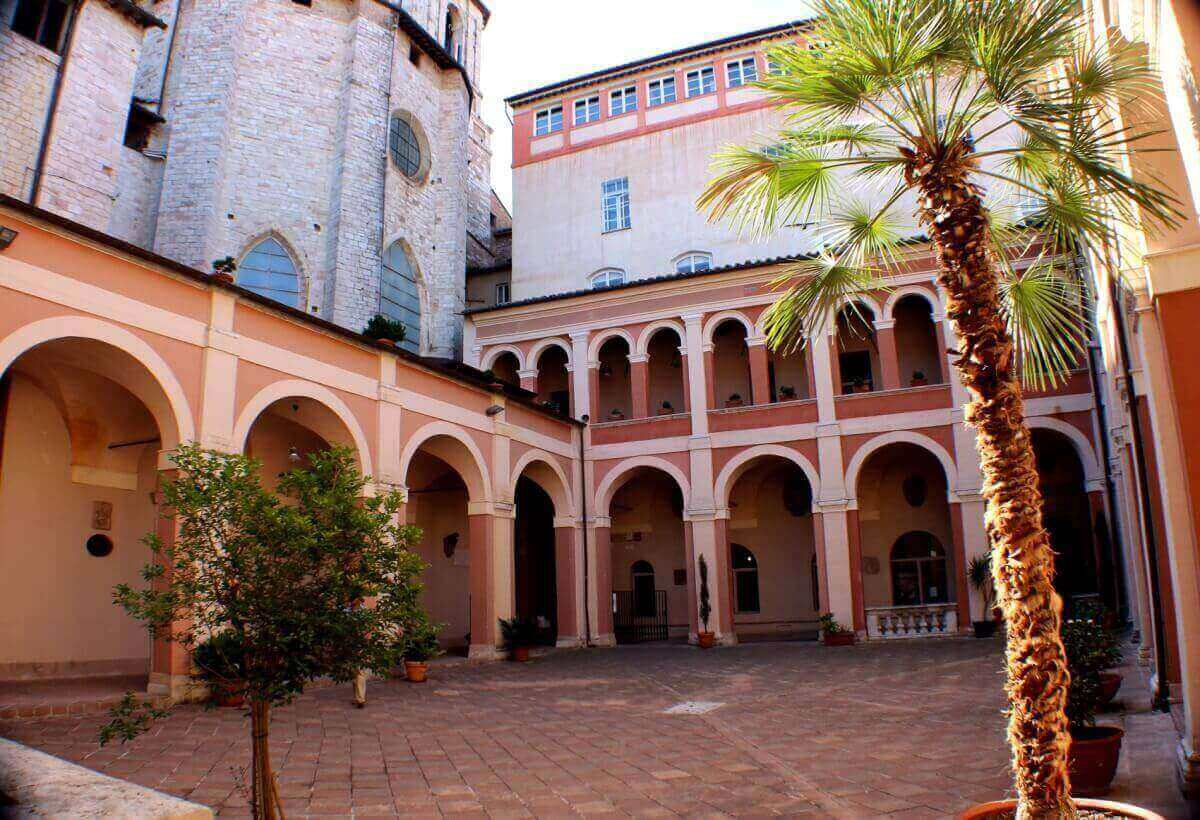Community Engagement (CE) is the cornerstone of the Umbra Institute’s mission in higher education. At least two-thirds of the courses offered each semester work directly with the local community on projects ranging from working with companies who are interested in developing their international business strategy to designing ceramics that will be sold as a fundraiser for UNICEF. For the Umbra courses that do not participate in CE initiatives, most are complimented by at least one field trip that provide students the chance to visually experience topics discussed in class.
[caption id="attachment_38734" align="alignright" width="250"]

Business students tour a local company in preparation for their consulting project.[/caption]
Some of Umbra’s most popular CE courses include:
- Seminar and Practicum courses with topics in Fair Trade, Museum Studies, Education, and Critical Disabilities.
- IBST 380: International Business Strategy and BSIM 390: International Marketing: These two courses take business concepts discussed in class and apply them to real-world experiences. This semester, students will work on a consulting project for locally based companies, that is then formally presented to company owners or representatives at the end of the semester. One class will be working to bring a ceramics producer into the international market, while another will assist a global interior design company with broadening its international reach.
- ISLI 330: A Taste for Knowledge
[caption id="attachment_37228" align="alignright" width="250"]
 Creative writing students visit a local winery to learn more about production techniques in preparation for their creative writing assignment[/caption]
: This creative writing course works with SapereFood Magazine to create food fiction pieces that are then published and shared throughout Italy and the English-speaking community based on visits to local food producers.
Creative writing students visit a local winery to learn more about production techniques in preparation for their creative writing assignment[/caption]
: This creative writing course works with SapereFood Magazine to create food fiction pieces that are then published and shared throughout Italy and the English-speaking community based on visits to local food producers.
- PYIR 450: Community-Based Research in Psychology: Through this class, students work with one or more partners, using field research methods to understand and evaluate an area in need of improvement and to test possible solutions. Recent partners have included a local immigration center where students worked with political refugees to understand their struggles integrating into the community and providing possible solutions based on qualitative analyses.
- PYHD 430: Human Development: A course that brings students into two local elementary schools to observe classroom functions relative to human development and to lead interactive cultural activities in English, using methods discussed in class.
[caption id="attachment_39468" align="alignright" width="250"]
 The ESUS 310: Placemaking team after using humor and puppets to teach children about the importance of sustainable spaces and community[/caption]
The ESUS 310: Placemaking team after using humor and puppets to teach children about the importance of sustainable spaces and community[/caption]
- ESUS 310: Placemaking: Creating Sustainable Urban Spaces and Communities: This semester, students will continue developing a project involving the revitalization of a terrace in one of Perugia’s picturesque neighborhoods. During the Fall 2016 semester, students worked to promote the community space to local children and their families. As they said during the Halloween party and puppet show they hosted, “What is important is to raise awareness among children of the need for sustainable space. We can work all we want, but they are the future that will keep these projects moving forward.”
Current students should mark their calendars for Monday, January 9th at 5:15 PM to participate in the Community Engagement and Student Activities Info Session and learn more about Umbra’s CE activities, student clubs, volunteer opportunities, and other Umbra-sponsored events.
Click here to read more about Community Engagement at the Umbra Institute.



 Business students tour a local company in preparation for their consulting project.[/caption]
Business students tour a local company in preparation for their consulting project.[/caption]

